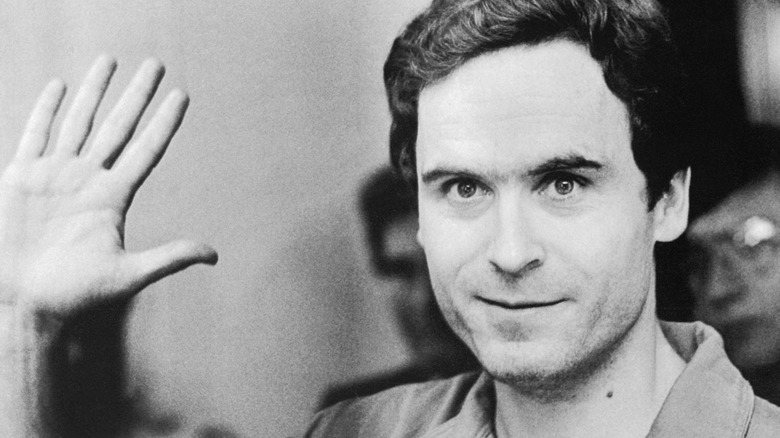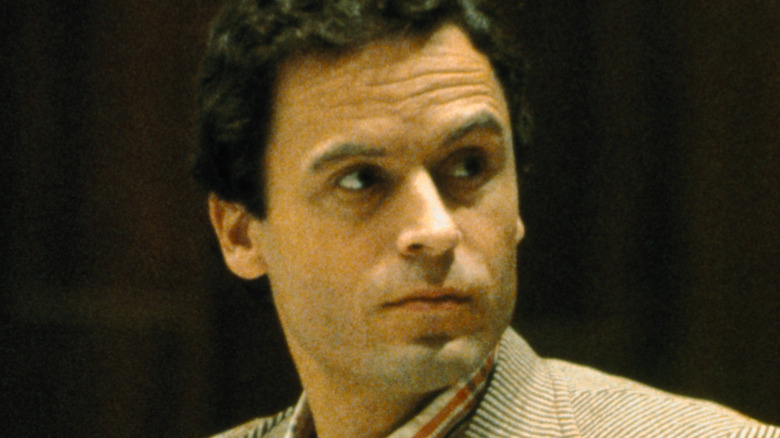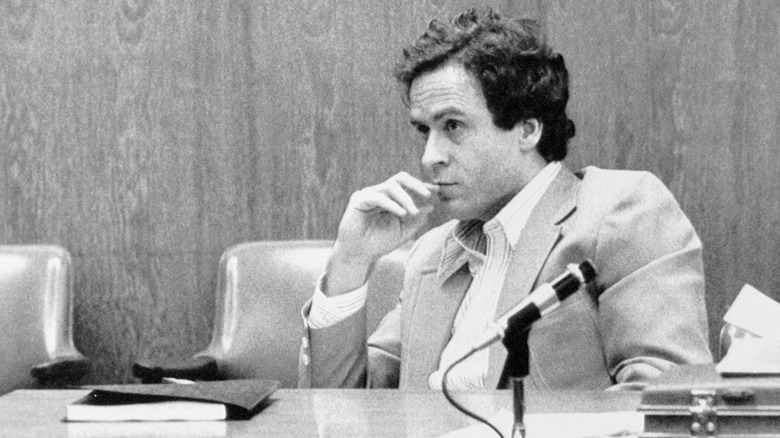This Is Where Ted Bundy Went To College
One of the most persistent myths about Ted Bundy is that of his intelligence. That serial killers as a group must be cunning geniuses is a popular but untrue assumption. According to Scientific American, those killers whose IQ has been tested rarely deviate from the general population average. Ann Rule, who knew Bundy in his college years, wrote in "The Stranger Beside Me" that his IQ was 124 on the standard Wechsler scale — high, but not at the level of genius. Deception got him many of his victims, and his oft-noted attempt to act as his own defense on trial was judged by one of his defense attorneys as self-sabotage (via "Defending the Devil: My Story as Ted Bundy's Last Lawyer" by Polly Nelson).
Bundy's reputation for brilliance may endure, in part, because of his background. His college career spanned multiple universities, beginning with the University of Puget Sound in Tacoma, Washington in 1965. Bundy was given a scholarship there, but within a year, he transferred to the University of Washington and threw himself into the Chinese language — convinced, Rule wrote, that it would be necessary knowledge in the near future. But that conviction didn't keep him there. According to a multiagency investigative report prepared after his death (via the U.S. Department of Justice), Bundy dropped out of Washington in 1967, sporadically attended Stanford University in California, and put in one semester at Temple University in 1969. It's part of the Bundy legend that, at this point in his life, he was unsuccessful in class and rejected by his first serious girlfriend.
Could his education have helped him in his crimes?
When Ted Bundy picked his education back up in 1970 (per the Department of Justice's 1992 multiagency report), it was as a psychology major back at the University of Washington. He graduated with distinction within two years, and his performance in class was so impressive that a professor — asked to write a letter of recommendation to law school — bemoaned that Bundy wasn't planning to continue down the road to professional practice (via Biography).
He was apparently genuinely interested in the subject. Ann Rule, who met Bundy while they both worked at a crisis call center, wrote in "The Stranger Beside Me" that "I had never brought up any facet of psychology that Ted wasn't fully conversant with." His success with the subject helped allay suspicions of him early in his murderous career. When he was a suspect in the death of Lynda Ann Healy, Bundy's former professors insisted that their bright young former student couldn't be the killer. Years later, when Bundy was in custody and awaiting execution, investigators appealed to his psychology training when trying to coax information out of him (per Stephen G. Michaud's "Ted Bundy").
Biography speculated that Bundy might have made more active use of his psychology background when committing his murders. Among his two favorite deceptions were faking an injury and dressing as a policeman. Specifically, Bundy could have counted on the pull of sympathy or the power of authority to lure victims.
Ted Bundy never finished law school
In "The Stranger Beside Me," Ann Rule wrote that the girlfriend who had rejected Ted Bundy in college did so because she found him aimless and suspected him of manipulating and lying. The girlfriend's name is given as Stephanie Brooks in Rule's book, but per History Collection, her real name was Diane Edwards. Edwards was shocked when Bundy came back into her life in 1973 with a psychology degree, a promising beginning to a political career, and a seeming commitment to their relationship. Nevertheless, he would abruptly end their relationship within a year in a likely play for revenge.
At the same time he was manipulating Edwards, Bundy tried to get into law school. Per The Trail, he went back to the University of Puget Sound in 1973, and per Rule, he was quick to seek a more prestigious institution. But though he gave every appearance of taking law and politics seriously as a career path, his attendance record was spotty. By that time, he'd already started killing, per Biography. His transfer to the University of Utah — achieved partly through a recommendation letter from no less than the governor of Washington state — conveniently got him out of Washington as the heat turned up on investigations into his victims.
Bundy never finished his law degree. Per Polly Nelson's "Defending the Devil," he was overwhelmed by his classes almost from the beginning of his time in Utah. That didn't stop him from projecting confidence to the point of arrogance when acting as his own defense — to his case's detriment.


